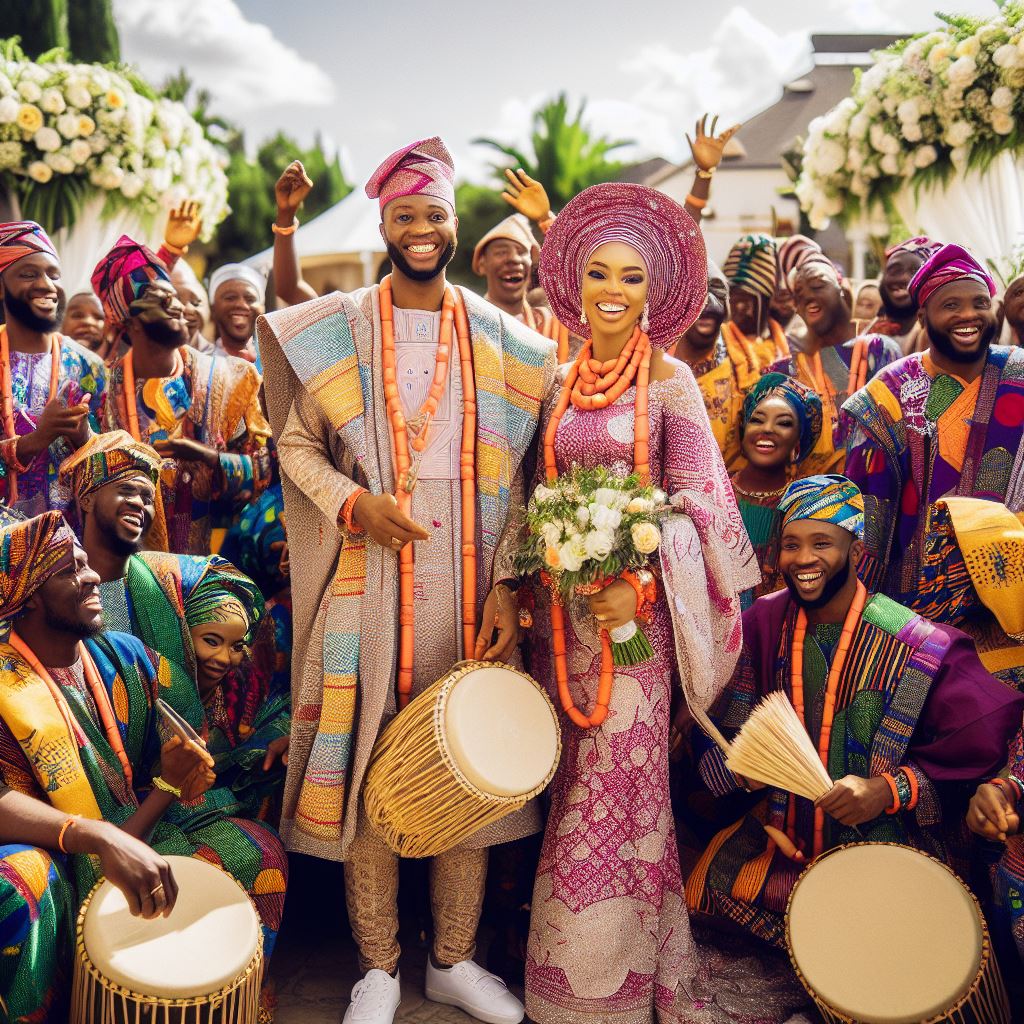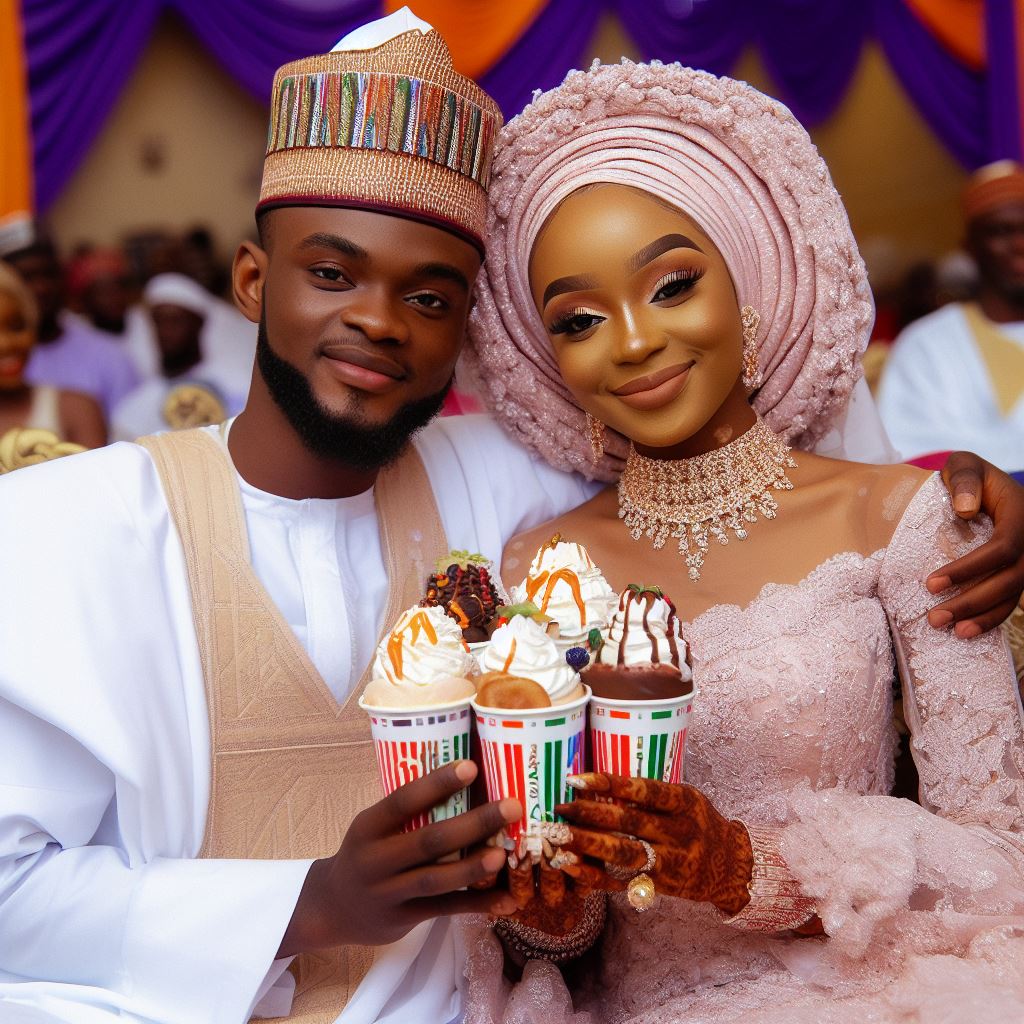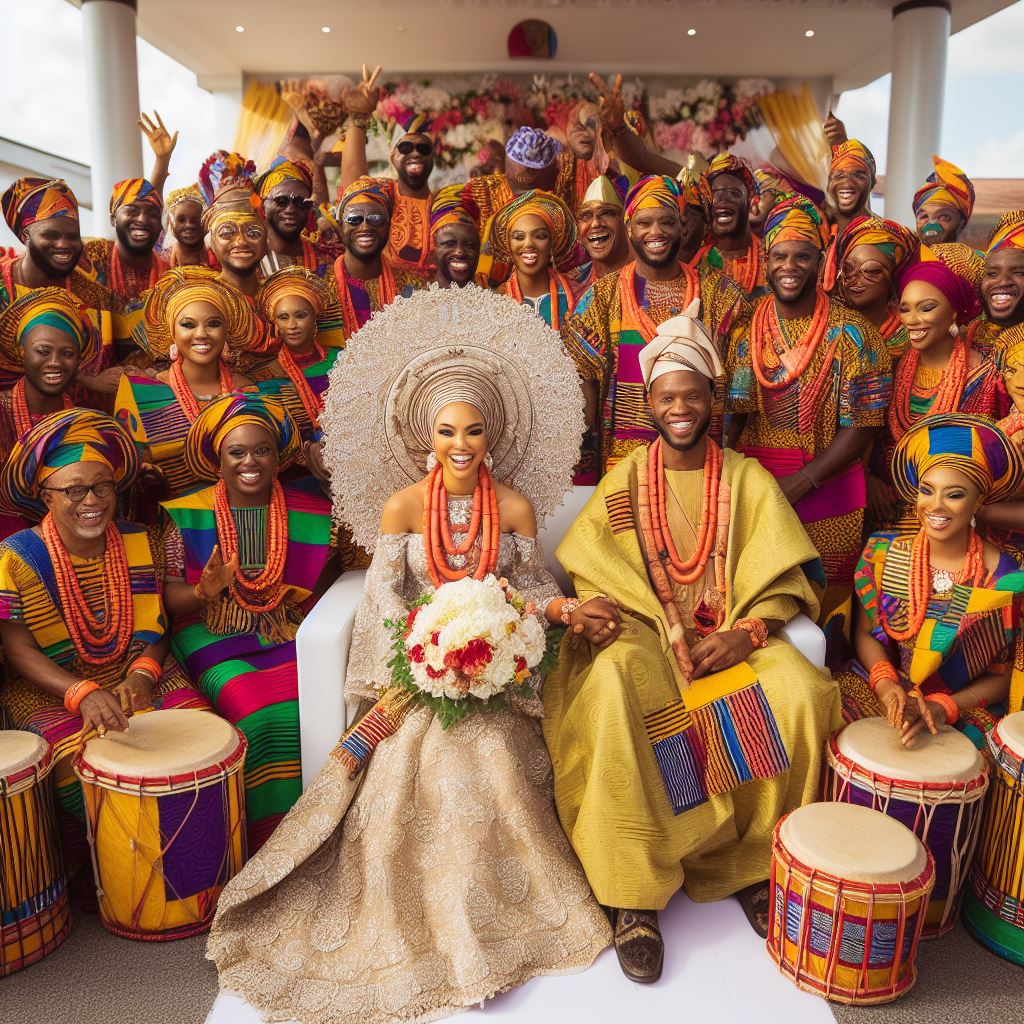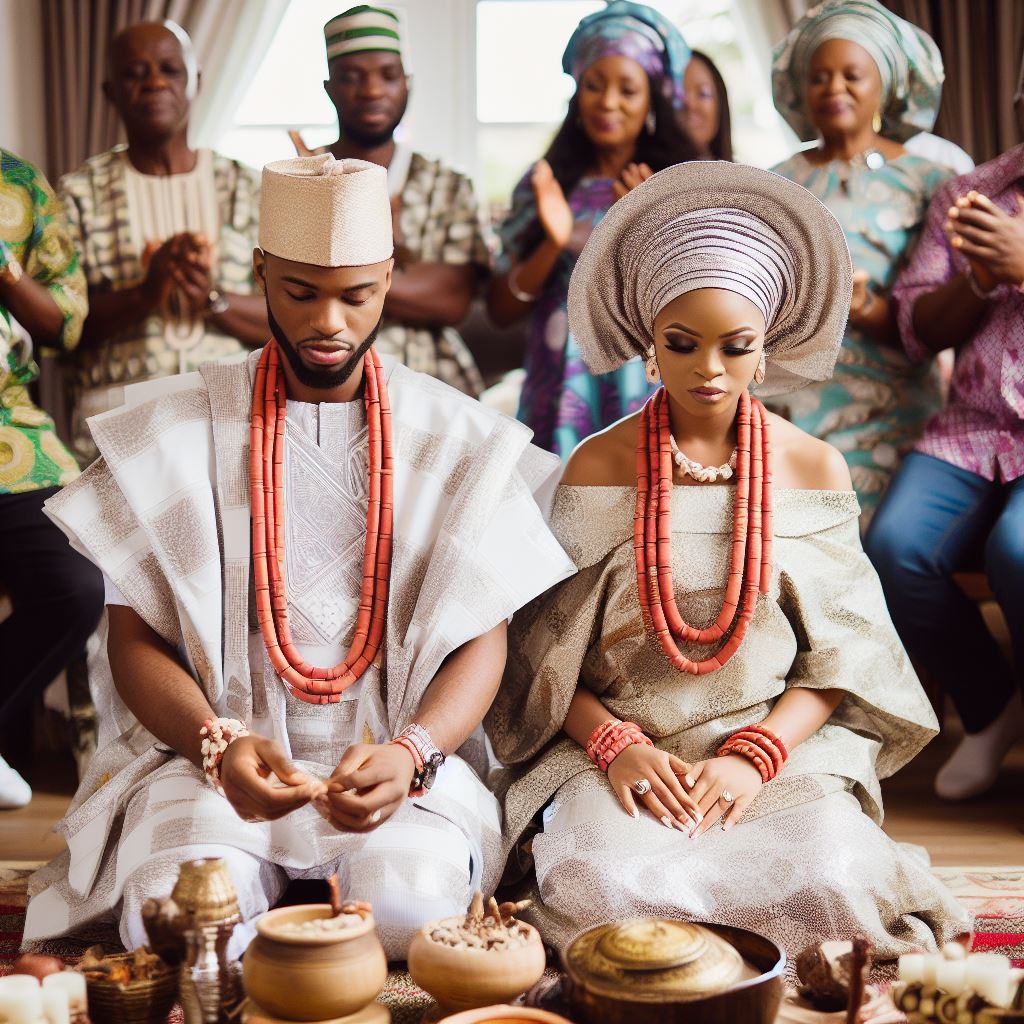Introduction
Brief overview of Nigeria as a country
Polygamy, a common practice in Nigeria, has historical roots embedded in cultural traditions.
In Nigeria, polygamy is often associated with wealth and power, allowing men to accumulate multiple wives.
This practice has its origins in the precolonial era when polygamy was prevalent among different tribes.
Historically, polygamy served as a way to ensure larger families, provide social status, and forge strategic alliances.
With the arrival of colonization and Western influence, polygamy faced opposition and legal challenges.
However, despite efforts to discourage the practice, polygamy still persists in modern Nigeria.
The factors driving polygamy today include cultural beliefs, religion, and socio-economic considerations.
While some view polygamy as a traditional and acceptable form of marriage, others criticize it for gender inequality and neglect of emotional bonds.
Definition of polygamy
Polygamy is a marital practice where a person has multiple spouses at the same time.
Contemporary Nigerian society presents diverse perspectives on polygamy, ranging from acceptance to outright rejection.
As Nigeria continues to evolve and embrace modernity, the practice of polygamy remains a complex and debated issue.
This blog post aims to shed light on the historical and modern aspects of polygamy in Nigeria, exploring its impacts on individuals, families, and the society at large.
In the subsequent sections, we will delve deeper into the origins, cultural significance, and contemporary dynamics of polygamy in Nigeria.
Read: From Adam and Eve: Lessons on Marriage in the Bible
Historical Perspective
Traditional African cultures and polygamy
In African societies, marriage and family play a vital role and are highly valued. Polygamy was considered a cultural norm in pre-colonial Nigeria, with its practice widely accepted.
The importance of polygamy in traditional African cultures was evident in the social structure and the roles assigned to men and women.
Impact of colonization on marriage practices
With the arrival of European colonizers in Nigeria, there was a significant shift in marriage practices. Western marital norms, particularly monogamy, were introduced.
These norms emphasized the union between one man and one woman, often influenced by Christian teachings brought by the colonizers.
Despite the introduction of monogamy, polygamy remained prevalent in certain regions of Nigeria. Some communities resisted the imposition of European ideals and continued to practice polygamy.
This persistence can be attributed to factors such as cultural resistance, economic advantages, and the desire to maintain traditional customs.
Role of religion in shaping polygamous practices
Religion has played a crucial role in shaping polygamous practices in Nigeria. Islam, which has a significant following in the country, permits men to have multiple wives, up to four, under certain conditions.
This has contributed to the continued acceptance and prevalence of polygamy, predominantly among Muslim communities.
On the other hand, Christianity has a different perspective on polygamy. Most Christian denominations advocate for monogamy, considering it the ideal form of marriage.
This has led to a shift in marriage practices among Christian Nigerians, as they adhere to their religious teachings.
The influence of religion on polygamy has made it a complex and nuanced issue within Nigerian society.
It has also sparked discussions and debates regarding gender dynamics, women’s rights, and the impact of cultural traditions on modern relationships.
Polygamy in Nigeria has a deep historical significance rooted in traditional African cultures.
The impact of colonization and the introduction of Western marital norms challenged its prevalence, but polygamy persisted in some regions.
Religion also played a significant role, with Islam allowing for multiple wives and Christianity advocating for monogamy.
These historical perspectives provide valuable insights into the complexities surrounding polygamy in modern Nigerian society.
Read: From Adam and Eve: Lessons on Marriage in the Bible
Modern Perspective
Socio-cultural factors, legal restrictions, and shifting attitudes continue to influence the practice of polygamy in modern Nigeria.
Legal status of polygamy in Nigeria
Nigeria legally recognizes and regulates polygamy, with specific conditions required for its practice.
Nigerian marriage laws provide an overview of the requirements and obligations for those wishing to engage in polygamy. These laws ensure that polygamous unions are recognized within the legal system.
Socio-cultural factors influencing polygamy today
1. Continuing influence of tradition and cultural values
Polygamy remains prevalent in Nigeria due to the deep-rooted influence of tradition and cultural values.
Many Nigerians view polygamy as an integral part of their cultural heritage, and traditional customs encourage its practice.
2. Economic considerations and benefits of polygamy
For some Nigerians, polygamy is a practical choice driven by economic considerations. In a country with high poverty rates, having multiple wives can provide economic support and labor for the family.
Polygamy is seen as a means to increase wealth and social standing.
3. Influence of gender roles and societal expectations
Traditional gender roles and societal expectations also contribute to the continued practice of polygamy in Nigeria.
Men are often expected to marry multiple wives as a symbol of their masculinity and social status.
Women, on the other hand, may feel societal pressure to accept the practice and maintain harmonious relationships within the polygamous family.
Changing attitudes towards polygamy
1. Rise of individualism and nuclear families
As Nigeria embraces modernity and individualism, there has been a shift in attitudes towards polygamy.
With the rise of nuclear families, many Nigerians are opting for monogamous relationships as they prioritize personal fulfillment, emotional intimacy, and stability within their own families.
2. Impacts of urbanization and globalization on marriage practices
Urbanization and globalization have also played a role in changing attitudes towards polygamy.
Nigerians migrating to urban areas encounter diverse cultures, exposing them to various marital practices and beliefs.
This exposure can challenge traditional notions of polygamy and create a more open-minded approach to relationships.
3. Emergence of alternative forms of relationships in Nigeria
In recent years, Nigeria has witnessed the emergence of alternative forms of relationships and family structures.
Non-traditional unions, such as cohabitation, same-sex partnerships, and single-parent households, are gaining acceptance and becoming more prevalent.
These alternative options provide Nigerians with alternatives to polygamy and broaden the definition of family.
Socio-cultural factors, legal status, and evolving attitudes influence polygamy in Nigeria.
Changing societal dynamics, globalization, and the rise of alternative relationships are reshaping polygamy in modern Nigeria, despite tradition’s support.
Read: Grace, Love, and Unity: Biblical Keys for Marriage

Controversies and Challenges
Gender inequality and power dynamics within polygamous marriages
- Impact on women’s rights and autonomy
- Polygamy frequently restricts women’s agency, demanding adherence to traditional gender roles and prioritization of their husband’s desires.
- Challenges faced by co-wives and children in polygamous households
- Co-wives often experience competition, jealousy, and emotional stress due to sharing a husband, which can negatively affect the overall stability of the household.
Economic implications and financial strain
- Division of resources among multiple households
- In polygamous marriages, the husband is responsible for providing for all his wives and children, resulting in financial strain and limited resources for each individual family.
- Poverty levels and socio-economic disparities in polygamous communities.
- Polygamy can perpetuate poverty within communities, as resources become thinly spread, making it challenging for families to escape the cycle of poverty.
Mental and emotional well-being in polygamous relationships
- Psychological effects on individuals involved.
- Living in a polygamous relationship can lead to feelings of inadequacy, jealousy, and emotional distress for both husbands, wives, and children involved.
- Stigma and societal perceptions towards polygamy.
- Polygamous marriages often face social stigma and judgment, causing individuals involved to face discrimination and marginalization within their communities.
Ultimately, the well-being of individuals in polygamous relationships depends on how they navigate and manage the unique challenges and opportunities that such relationships present.
Read: The Beauty of Commitment: Top Bible Verses on Marriage
Gain More Insights: The Role of In-laws: Stories from Newlyweds in Nigeria
Conclusion
Recap of key points discussed
- Polygamy is a prevalent practice in Nigeria, rooted in historical and cultural traditions.
- It has both advantages, such as increasing social status and providing economic support, and disadvantages, including issues of inequality and infidelity.
- Changing socio-economic conditions and Western cultural influences shape modern perspectives on polygamy.
- The practice is still common today, although its prevalence has decreased over time.
Reflection on the historical and modern perspectives of polygamy in Nigeria
Polygamy in Nigeria has evolved over time, adapting to societal changes and external influences.
It was once a norm, but changing values and the rise of gender equality now make it controversial.
Closing thoughts on the future of polygamy in Nigerian society
The future of polygamy in Nigeria remains uncertain. With increasing education and awareness, more Nigerians are questioning the practice and advocating for gender equality.
However, cultural traditions and economic factors still play significant roles, making it difficult to predict the complete eradication of polygamy in Nigerian society.




